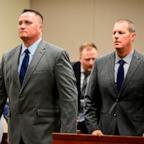Can You Trash Your Teacher on Facebook?
Recent rulings provide mixed messages to students, school administrators.
Feb. 22, 2010— -- Like it or not, it's a sport as old as school itself.
Whether scribbling with No. 2 pencils, whispering outside classrooms or yammering at home, disgruntled grade-school students have always found a way to criticize their teachers. And if they go too far, school administrators have always found a way to punish them.
But now, thanks to the Internet and online social networks, the line between protected and punishable student speech is blurrier than ever, leaving school administrators and students without a clear roadmap to follow.
And even though three federal rulings on online, off-campus speech have been issued this month alone, legal experts and school administrators say it's still too early to tell where the hand of the law will ultimately land.
Free speech advocates celebrated this month when a Florida judge ruled that a high school student's Facebook page denouncing a teacher is protected by the First Amendment.
In 2007, Katherine Evans, then a senior at Pembroke Pines Charter High School, was suspended for three days and removed from advanced placement classes for creating a Facebook page declaring that her teacher was "the worst teacher I've ever met."
When Evans sued Pembroke Pines principal Peter Bayer for violating her First and 14th Amendment rights, Bayer filed a motion dismiss the suit.
In a decision dated Feb. 12, U.S. Magistrate Judge Barry Garber ruled in Evans' favor.
"Evan's speech falls under the wide umbrella of protected speech," he wrote. "It was an opinion of a student about a teacher, that was published off-campus, did not cause any disruption on-campus, and was not lewd, vulgar, threatening, or advocating illegal dangerous behavior."
In a statement, the Florida chapter of the ACLU, which represented Evans along with Florida attorney Matthew D. Bavaro, called it a "ground-breaking" case.
"This is an important victory both for Ms. Evans and Internet free speech because it upholds the principle that the right to freedom of speech and expression in America does not depend on the technology used to convey opinions and ideas," said Maria Kayanan, the organization's associate legal director.
Bavaro told ABCNews.com that he hopes other schools use this case as a lesson to help guide them in similar situations.
"We hope that this case settles a lot of ambiguity that may exist in the minds of school administrators in terms of their rights and their obligations under federal law," he said.




